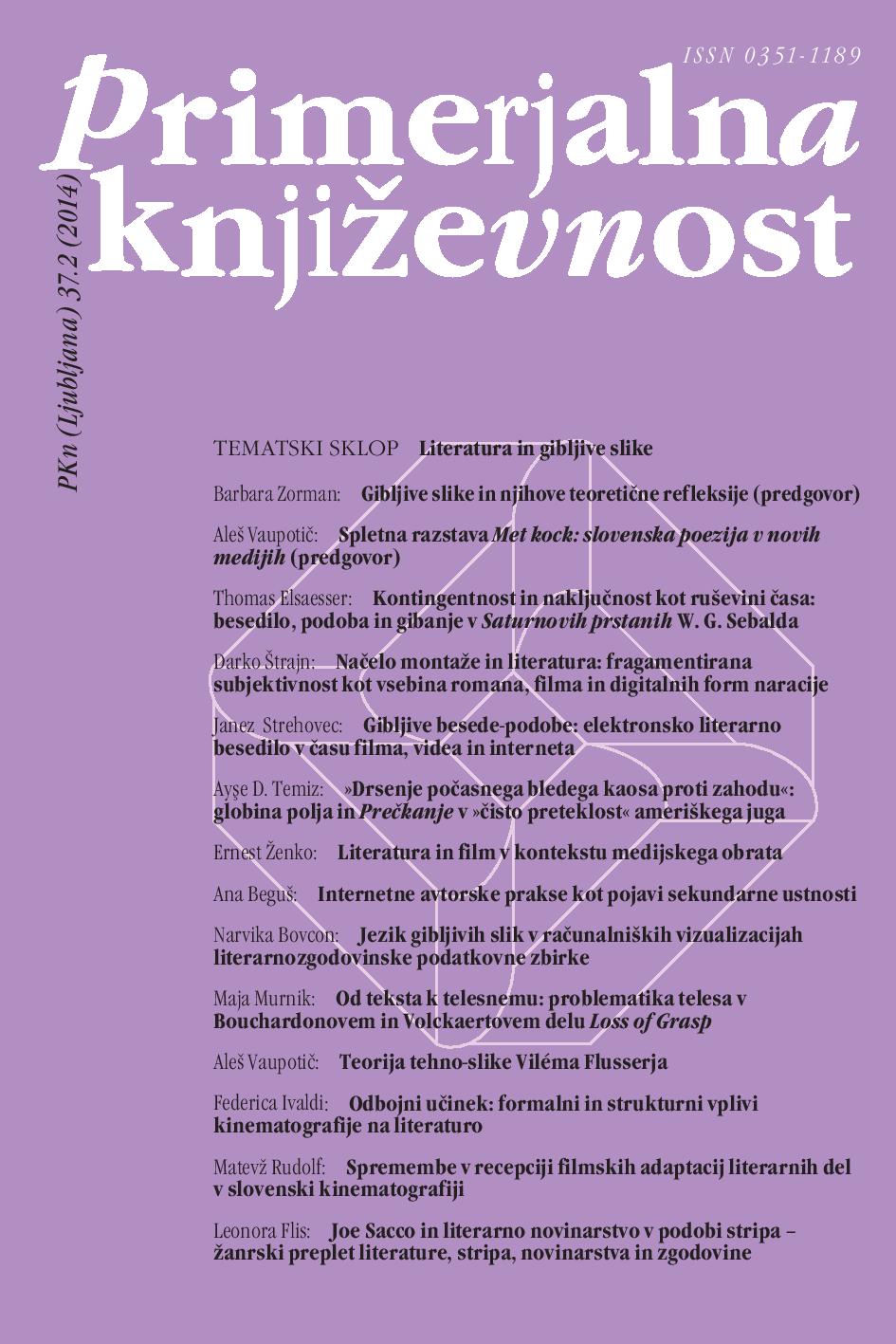The Principle of Montage and Literature: Fragmented Subjectivity as the Subject-Matter in Novel, Film and in Digital Forms of Narration
Keywords:
literature and film, montage, de-montage, subjectivity, Benjamin, Walter, German literature, Döblin, Alfred, Berlin Alexanderplatz, film adaptations, Fassbinder, Rainer WernerAbstract
This article proceeds from a discussion of Döblin’s novel Berlin Alexanderplatz and its adaptation in a 1931 film and a 1980 TV series. It takes into account Benjamin’s remark about the novel, which is based on the principle of montage. This principle in pluralist settings in today’s world of interplay between constructed realities operates not just through artistic practices, but through a whole complex of various communication, information, and presentations.References
Benjamin, Walter. “Krisis des Romans: Zu Döblin’s Berlin Alexanderplatz.” Gesammelte Schriften, vol. 3. Frankfurt am Main: Suhrkamp, 1991. 230–236.
Benjamin, Walter. “The Work of Art in the Age of Mechanical Reproduction.” Illuminations. New York: Schocken Books, 1969. 217–251.
Bourdieu, Pierre. Méditations pascaliennes. Paris: Seuil, 1997.
Brockmann, Steven: A Critical History of German Film. Rochester, NY: Camden House, 2010.
Caygill, Howard. Walter Benjamin / The Colour of Experience. London: Routledge, 1998.
Deleuze, Gilles. Pourparlers. Paris: Les Éditions de minuit, 1990. (English translation: Postscript on the Societies of Control, October, vol. 59, Winter, 1992, 3–7.)
Döblin, Alfred. Berlin Alexanderplatz / Die Geschichte vom Franz Biberkopf. Berlin: S. Fischer Verlag, 1929.
Elsaesser, Thomas. Fassbinder’s Germany. Amsterdam: Amsterdam University Press, 1996.
Faucon, Térésa. Théorie du montage. Paris: Armand Colin, 2013.
Henkin, David. City Reading: Written Words and Public Spaces in Antebellum New York. New York: Columbia University Press, 1998.
Kleinschmidt, Erich. “Döblin’s Engagement with the New Media.” A Companion to the Works of Alfred Döblin. Eds. Roland Dollinger, Wulf Koepke, and Heidi Thoman Tewarson. Rochester, NY: Camden House, 2004.
Manovich, Lev. The Language of New Media. Cambridge, MA: MIT Press, 2002.
Manovich, Lev. Software Takes Command. London: Bloomsbury Academic, 2013.
Murray, Timothy. Digital Baroque / New Media Art and Cinematic Folds. Minneapolis: University of Minnesota Press, 2008.
Williams, Raymond. Television / Technology and Cultural Form. London: Fontana, 1974.


